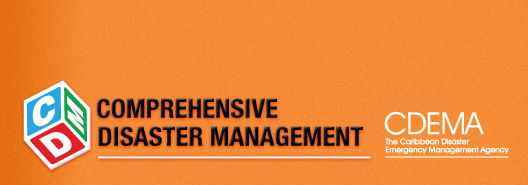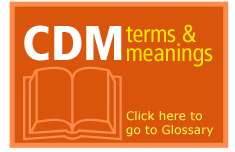|
Why is Tourism important?
Now that cruises and air travel have become cheaper, safer and more popular, tourism has quickly become the largest earner of foreign exchange in many of our islands. Over the years, tourism in the region has been based almost exclusively on the attraction of the climate and beaches. Presently, the Caribbean is the number one cruise destination in the world.
The tourism industry can be divided into eight main sectors:
- Accommodation: hotels, guest houses
- Food and Beverage: hotels, restaurants
- Transportation: taxis, buses
- Attractions: waterfalls, historical sites
- Travel Trade: travel agents, airline offices
- Events and Conferences: carnivals, sporting events, music concerts
- Adventure Tourism: mountain climbing, parachuting
- Tourism Services: consultants, researchers, travel writers
Across the region, tourism employs over one million persons and is responsible for one third of the region’s exports. Many other industries depend on tourism for their survival. Farmers, taxi drivers, souvenir makers and entertainers are only a few of the persons who use the tourism industry to make money.
Tourism is vulnerable to the effects of disasters mainly because of its location. The Caribbean region is prone to hazards, and most of these hazards are concentrated nearer to the coast. The tourism industry is also focused near to the coastline. Should a disaster happen and destroy these hotels or restaurants, the industry would suffer as well as all those who rely on it. Also, after a disaster, tourists are less likely to visit because of the destruction and this decline in visitors also affects the tourism industry.
Our dependency on the tourism industry, as well as its dependency on so many different factors, makes its vulnerability to disasters a serious issue.
History
- During the Indian Ocean tsunami of 2004, thousands of western tourists were the victims of the tsunami. The overall death toll was estimated at over 280,000 and the number of tourist causalities at more than 3,500.
- Hurricane Katrina in New Orleans in 2005 left more than 80% of New Orleans underwater and damaged the tourism industry, which was their biggest source of revenue. In 2004, this industry had drawn in more than 10 million visitors and created 80,000 tourism-related jobs.
-
After Hurricane Ivan passed over Grenada in 2005, all of the island’s hotels had to be closed. About 50% of Grenada’s physical tourism assets (hotels, restaurants) were destroyed. This caused Grenada’s tourism industry to sharply decline.
Protecting Tourism from Disasters
Nowhere in the world is safe from the risk of a disaster. In the Caribbean, we are especially at danger because we can be harmed by nearly every type of hazard. We are in a zone that is prone to tropical storms and hurricanes, earthquakes, tsunamis, volcanic eruptions, floods and landslides.
Usually, the focus of the region and tourism industry has been on hurricanes and tropical storms – and for good reason. We can expect to be impacted by one of these at least once a year and the damage is usually severe. Any money spent to prepare a hotel for a disaster is usually spent on hurricane mitigation measures.
However, this is not good enough. The tourism industry is different from others because it deals primarily with people. During a disaster, along with the damage to buildings there is the real possibility of death and injury to both tourists and the staff. Protecting the tourism industry can mean protecting jobs and lives.
- Do you have an evacuation plan? We know that tourism is concentrated near to the coast. In addition to putting this industry in danger from hazards, it also means that there usually aren’t a lot of evacuation options for those who work and are visiting our islands. Tourists are usually not aware of the geography of their destinations. Yet, tourists need to know where critical support services such as shelters, evacuation routes, hospitals, fire stations, police stations, and airports are.
- Do you know your tourists and staff? There are different types of tourists that visit the region, for example, families on holiday are different from thrill seeking singles, who are both different from honeymooners. They will stay in different types of hotels and how they spend their time will also be different. It is important that you know if any visitors have disabilities or if they speak different languages. Also, keep a registry of who is present in the hotel so that you can know if everyone is safe.
- Are all the visitors to your country in hotels? For tourists that visit by yacht, evacuation of these vessels ought to be a priority as rough waves can break boats away from their anchors. We have to think too not only about coastal hotels but also about coastal and marine based tour operators.
- Are your employees trained for a disaster? Staff must know how to take care of the guests and themselves during an emergency.
- Do you have an emergency plan? During an emergency, everyone needs to know what to do and having a clear flow of information helps. Also, this plan needs to be practiced by the staff but since visitors come and go, it’s best to tell them what to do when they check into the hotel or sometimes even the port.
- Do you have enough supplies? You need enough water, food and any other emergency supplies to last all of your guests for at least a week. This should be prepared beforehand.
- Is your relationship with the community good? During emergencies, you may need help from others and it’s easier to get this help if you already have a good relationship with the surrounding areas.
- Are your backup supplies safe? Do your backup generators and emergency water supplies work? Also, remember to store any files you may need in a safe place.
- Do your guests know the warning signal? Tourists may not have a mobile phone or radios so you’ll have to find some other way to warn them. Also, explain to them the dangers of these hazards because some guests have never been through a hurricane or landslide before – and they may not know what to expect.
- That the tourism industry must be prepared to assist itself in times of emergency. Hotels and upscale restaurants in that region were dependent.
Have you made plans with the government? Many times, because of the scale of damage and the number of persons involved you may need official help. Disaster management is not the sole responsibility of the government but they offer assistance.
back to top
|












